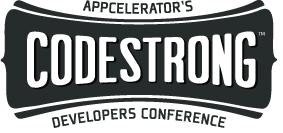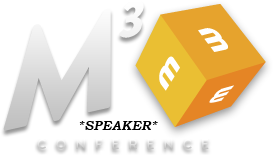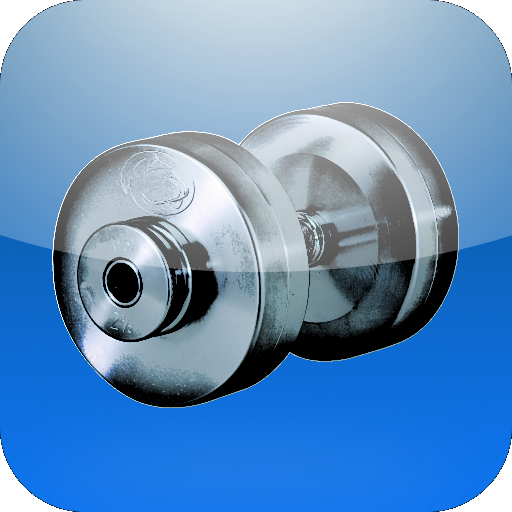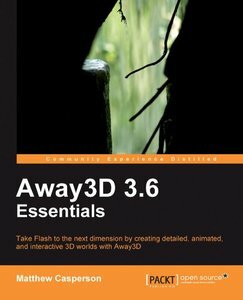These are the tips I suggest, and follow myself, for becoming and remaining relevant in the arena of my technical interests. I’m not promising what the SEO and social media marketers promise in terms of universal popularity. I’m just offering a hard working path to making your work, content, and opinions relevant to your target technical audience.
A lot of these tips are vague and obvious. I’ve found, though, that hearing common sense from someone else or seeing it in print often works as a catalyst for actually acting on it.
Exist
Get yourself a blog to have a home for your original content and work. People need to know you exist as a unique entity. Sign up for a cheap plan at one of these hosting solutions:
- HostGator
- RackSpace
- MediaTemple
- GoDaddy
Fire up a default WordPress install and get started creating original content. Don’t waste a lot of time on WordPress themes and plugins. While fun, they are a huge time sink and you’ll likely change it all at a later date anyway. Spend no more than an hour finding a theme you like and move on.
If you don’t already have a network of people to point to your blog, it may seem like you are pushing content to a black hole. The first few months of this blog I saw next to no traffic. But keep at it. If you build it, they will come.
Eventually you’ll pop up in search engines and your peers will start coming back on a regular basis. Unless you have a popular flagship piece of software/hardware to your name, the growth will be slow and steady. Just be patient. In the end your blog will likely be the most important thing that identifies you.
Be Seen
So how do we start growing that blog audience? Through the miracle of social networking.
You should be familiar with some of the most famous social networking haunts in the world by now in , , and . If not, get familiar. These are huge, free audiences that will grow proportionally to the amount of effort you apply to them. Personally I’ve found all the good tech interactions on Twitter, but YMMV.
NOTE: I could write a whole other post on building a Twitter identity and leveraging it. Let me know in the comments if you are interested. Short version: Use Tweetdeck, WeFollow, and Twiends.
Two other places you should consider posting your work judiciously are Reddit and Dzone. Reddit obviously has everything under the sun posted to it, but useful subreddits like Programming, Technology, Android, etc… are important to visit. DZone is kind of like a standalone version of Reddit’s programming subreddit. If you put links to interesting, relevant original work up on these sites, you have the potential to drive serious traffic to your personal site(s).
Contributing to the open source community and providing raw work for feedback is a great way to catch people’s eye as well. For developers, look into creating accounts and contributing to either or . As a designer, check out some of the popular design communities like Forrst or Dribbble.
Be Unique
I don’t mean you have to have something outlandishly weird every time you publish content, but make sure you aren’t just paraphrasing wikipedia or SDK documentation either. The thing that is going to set you apart from every other blog in the world is your unique perspective on your chosen technologies.
That’s not to say simple tutorials blog posts are bad. In fact, they are pretty good for getting you more hits from search engines. It’s your technical, and even personal, history along with your (un)biased opinions that will give your content a feel that is distinct to you. And that’s what will give you relevance.
Talk
Now that you know where to make the connections, start engaging them. If you want people to listen to what you say, they need to believe you know what you are talking about. The best way to convince them is to have logical, spirited debate with them.
Find the talkers on the social networks, wait for or propose discussions on topics in which you have expertise, then talk shop. Be one of the people giving critical feedback on Forrst, sending pull requests on Github, or tweeting tips on Twitter.
People like developers who have a personality. The more human and accessible you are, the more likely that people will want to see what you do next.
Know the Players
Identify the key people in your area of interest and try to become part of their social network. This is a very delicate task and one that grows exponentially harder depending on the popularity of the people you are trying to get in with. You need to be interesting without seeming like you are begging for attention.
In my experience, the best route is to help them out. If you know a developer who needs testers for an alpha app, volunteer. If there’s a project out there that you had a great experience with, write a blog post about it and let the owners of the project know you wrote it. Make yourself useful, rather than just being a leech on their status.
Having an in with the core people in your area of interest carries not only the benefit of relevance by association, but you also will be on the cutting edge of what they have to offer. Advance alpha testers and new tools are often offered first to those in the social network of these key players.
Focus
Hits and visits to your site aren’t really impacted by how cohesive your content is. Subscriptions, though, the visitors who come back time after time, are. Your faithful fans come to expect a certain kind of content and can easily be turned off if one day you are posting about writing 3D Flash applications with Away3D and the next you are posting code for a packet sniffer in C++.
Don’t let this divert you entirely from one-off topics, especially if they are currently trending. Just don’t make it a habit and keep those one-offs technology related. Most people who run tech blogs that have other non-tech related endeavors tend to have separate sites for their other interests.
Also, I’m no SEO expert, but I’ve heard many times that having similar content throughout the full extent of your domain will increase your chances of showing up on searches. SEO isn’t the end all, be all of relevance, but it certainly doesn’t hurt. The more often you show up on the front page of Google, the more likely you will be viewed as an authority.
You’re Not The Best
SPOILER ALERT: You are not the best at what you are doing, and this has very little to do with whether or not your ideas get noticed or become successful. Execution, not skill, is more often than not the limiting factor for a developer’s success.
I know too well the virtual paralysis some feel when approaching a project that they think someone else could do better. Why bother when some 14 year old Japanese kind will do a better job? Why? Because chances are that Japanese kid won’t finish the project either.
The developers who have created some of the most important applications of our time were often not geniuses. They simply were very good at what they did, had an idea that they truly believed in, and executed it to completion. Not 80%, not just an alpha to play with, an actual product. Which leads me to our next vague tip…
Create Things
Pick a simple project in your field of interest and do it. Begin to end, every step necessary to make it available to your target audience. You’ll learn directly afterward that ideas are a dime a dozen because all the cost is in the implementation.
Having a completed project, no matter how simple, achieves many things:
- You will have your name on something you can point to and immediately and show your talent and ability to execute.
- People will start identifying you with this work, and will likely engage you more with feedback and requests.
- Puts you in that universal developer’s lottery. You know, the one where a developer gets unexpected success based off a simple idea that just grew and grew.
Most of this is based on the idea of delivering an application, but it applies to any content: applications, books, blog posts, video tutorials, any production quality material that you would be proud to have associated with you. While we generally hate them, you as a developer need to adopt a product manager’s view in some respects, except you control the deadlines.
If you have nothing to your name yet, make your first venture very simple. Too often people get lofty ideas of creating frameworks and engines before creating one practical use case themselves. One of my favorite (recent) examples of this is Grant Skinner’s EaselJS library that resulted from his development of “Pirates Love Daisies”. He didn’t say, “I’ll develop an HTML5 and JS canvas engine then figure out what to do with it.” No, he created a game using the new technology, learned lessons along the way, then translated these lessons into code that others could leverage.
Be Interesting
I mentioned that tutorial blog posts are good for SEO, but not much else. Evangelism is great, but usually only interests other evangelists. If you really want to get a faithful audience, you need to deliver unique, interesting content.
Being controversial seems like a logical way to do this. Being inflammatory and brash is sure to turn some heads, but it can also lead to you getting black listed by the legitimate people in your target technology. So how do we raise eyebrows without being a total jackass?
I have found that inserting strong opinions into a solid technical discourse works best for me. When I write a research and comparison article, I render a decision and I put my perspective into why I chose it. Laying out the facts is very useful, but picking sides and being open to debate is what puts asses in the seats. You may not think so, but negative comments in your blog are gold. Those are the ones that generate the interesting ongoing discussion.
You need to be animated, personable, and opinionated while maintaining a staunch respect for credibility. Your audience is generally well educated and they will not stand for constant subjective statements without very strong technical backing. Think Bill O’Reilly, not Howard Stern.
Learn from Others
Get on the social networks and developer/designer communities I mentioned earlier and see what the heavy hitters are doing. Find the people that inspire you. Find the people who’s attitude and work resonate with you. Now model your behavior after them without losing your own identity.
I could elaborate on this section, but I’ll leave that to you. The interactions you have with the people that inspire you are your own. Listing mine here will never compare or seem as genuine as your own experiences. That said, here’s a shout out to a few people who have in one way or another had a very positive impact (whether they know it or not) on me and my journey to relevance in the technical community.
- Jesse Warden
- Jesse Freeman
- Dan Florio
- Sean Moore
- and whole bunch of other Twitter friends who have been extremely helpful
Work Hard
So in this 2000+ word brain dump I mentioned a lot of stuff, and I didn’t even get into the specifics of any of the content you would need to be generating. Needless to say, none of this is going to happen by itself and it’s going to take constant hard work to leverage all this info. Being relevant is not something that happens by accident.
So once you do start generating your own content, be sure to stay on top of your social connections and internet presence so your work does not go unnoticed. It is not easy work, but I assure you, over time it gets much easier.
Good luck and be sure to drop me a line if this advice helped out!








Yeah, lets do another round of this. Good stuff.
All excellent advice. Many say personal blogs are no longer as relevant due to the easy and direct interaction possible through social networks, but I think that as long as your blog is delivering quality content rather than waffle it’s absolutely one of the best things you can do for yourself, for beginner developers in particular.
Also, if any developer is not on Twitter, GET ON THERE! You are missing out! Has been *the* biggest help in my career besides real-life networking at conferences.
Have to say I’m not so great with the blogging myself but I do see the value and you’ve inspired me to get back into it. Cheers!
Solid advice.
Thank you for posting this.
I want to be like you when I grow up, Tony.
@Tanya: Get on that blog! Especially since I know you are diving head first into freelancing now. Be sure to let me know when you do
@Antonio: No you don’t. Far too much back pain and notions of self importance that generate articles like this
Amen.
Definitely would like to see that post on what you’ve garnered on effective Twitter usage.
Tony,
Fascinating post, I took a similar route in developing my own niche skill set. I went with a blog, created great content and people found me. While I don’t blog about anything tech related I think most of your points are generalist enough that they could be applied to many different topics.
~Nate